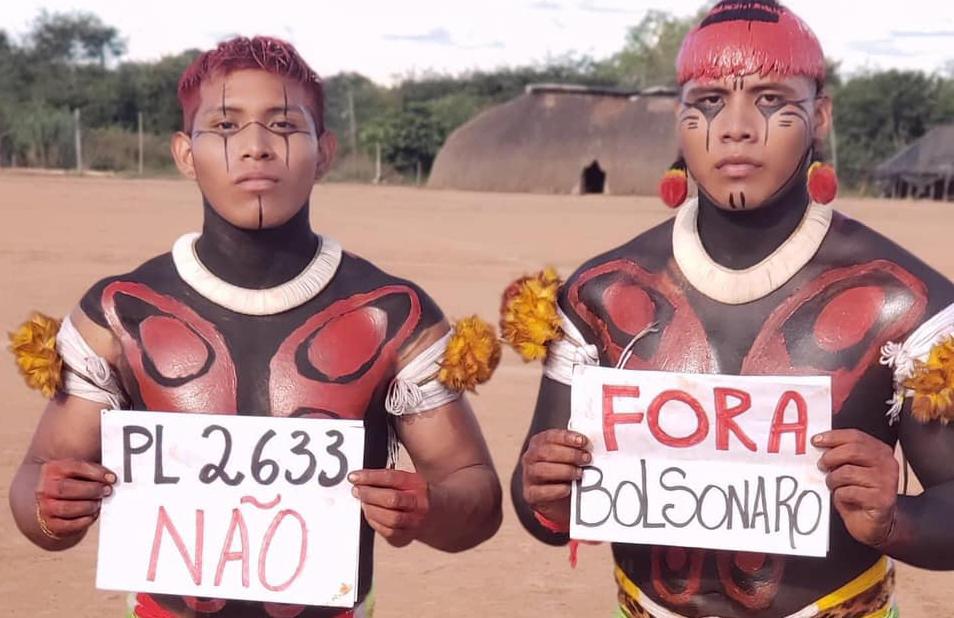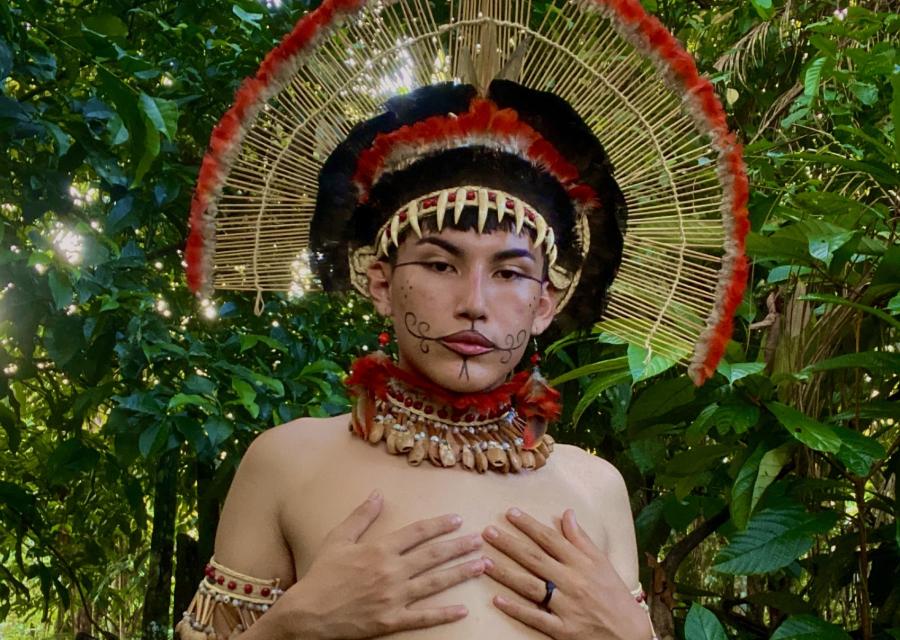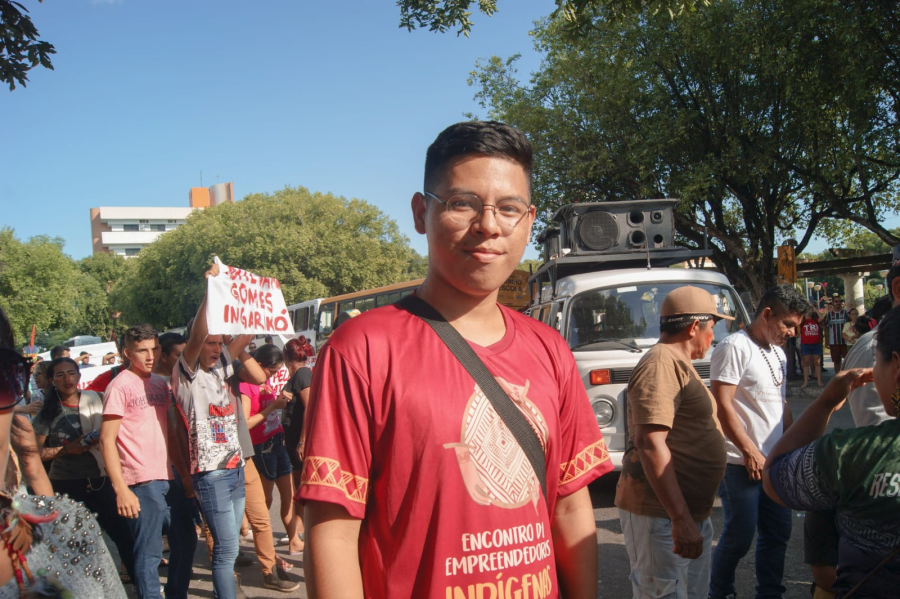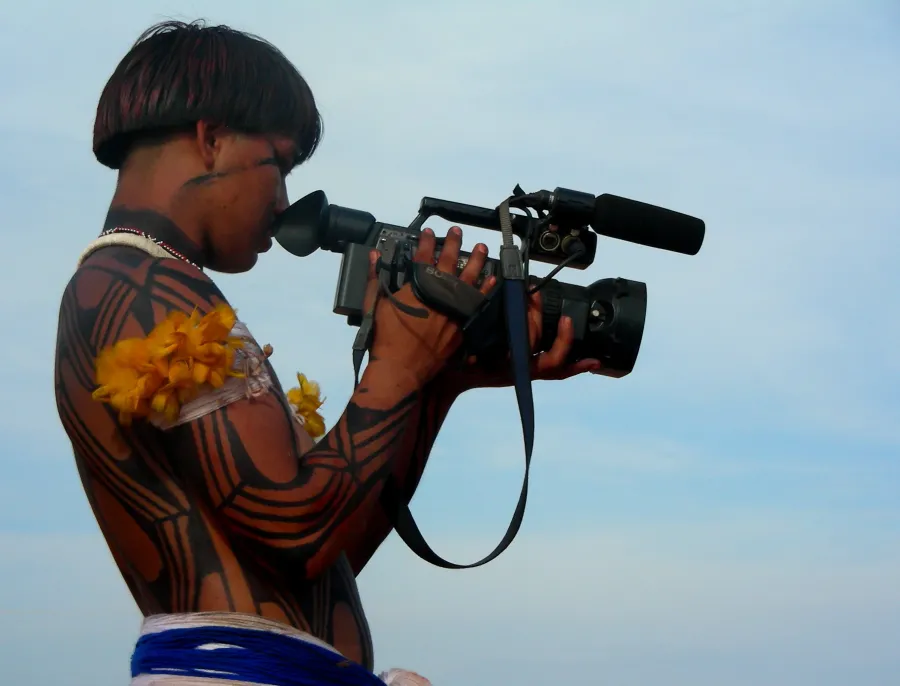
By Edson Krenak Naknanuk
Since the 1988 adoption of Brazil’s Constitution, Indigenous Peoples have fought many battles for their rights. Their victories include the subsequent demarcation of nearly half of their lands; enactment of Law 11,645 of 2008 which mandates inclusion of Indigenous culture and history in the national educational curriculum; acknowledgment of Indigenous Peoples’ rights to primary education in their native languages; and the growing awareness of Indigenous rights (from the UN Declaration on the Rights of Indigenous Peoples, ILO 169, etc.). These achievements are the result of intense social and political mobilization both within and beyond Indigenous communities.
However, the progress Indigenous Peoples have made is now severely threatened. During his electoral campaign, Jair Bolsonaro promised that he would not demarcate "an inch more of Indigenous land." He fulfilled this promise on his first day in office by suspending all demarcations in-process. Since then, President Bolsonaro has implemented a series of public policies that roll back Indigenous rights. He changed environmental laws, created administrative norms and bills that undermine Indigenous rights and threaten their territories, thereby undermining Indigenous Peoples’ exemplary practices that protect forests and other biomes, such as the Amazon and cerrado. Bolsonaro’s ideas and discourse encourage illegal actions against Indigenous lands and peoples, inciting land grabbing and invasions into Indigenous territories and increasing violence. Bolsonaro erroneously claims that non-Indigenous farmers, mining companies, and other groups have applied for permits to allow them to exploit areas they see as “unused”, however nearly 94% of these so-called “unused” areas are located within legally demarcated Indigenous territories. Granting access to these lands, if permits are approved, violates Indigenous Peoples constitutionally guaranteed rights.
Among Bolsonaro's most alarming decisions was, in February 2020 an appointment of a missionary, Ricardo Dias Lopes, as the head of the division within FUNAI (National Indian Foundation) that is responsible for protecting and monitoring isolated and recently contacted Indigenous Tribes (CGIIRC).
A Big Victory
Following strong pressure from Indigenous Peoples and Indigenous associations, including Indigenous Christians, NGOs, anthropologists, and Brazil’s Federal Public Prosecutor (MPF), the Federal Appellate Court (TRF1) not only reviewed Bolsonaro's decision to appoint Dias Lopes but voided it.
Judge Antonio Souza Prudente, who ordered the annulment, stated that, because the missionary nominee has already adopted positions that violate the rights of isolated Indigenous Peoples, it is essential to prohibit “the adoption of measures that may clash with fundamental guarantees, especially those that ensure Indigenous Peoples the right to self-determination under the terms of the Federal Constitution and ILO Convention 169 on Indigenous and Tribal Peoples.”
Indigenous organizations, the Brazilian Anthropological Association, as well as lawyers from the Federal Public Prosecutor’s office argued that reversing Brazil’s policy of refraining from forcing contact upon Peoples in voluntary isolation, as well as recently contacted Peoples, poses a serious risk of genocide.
The Fiercest Battle Ahead
The next morning after the annulment of the FUNAI appointment, a tougher battle broke out. Bolsonaro is pulling out all the stops to pass bill 910/2020, which he has been pushing since December 2019. If passed, this law would open more than 40,000 square miles of Indigenous Territory to mining operations, land grabbing, illegal lodgers, large monoculture agribusiness, and cattle farms. This law would allow for massive deforestation of the Amazon.
On May 21, 2020, the Supreme Court released a shocking video recording of a ministerial meeting that took place in April. In the video, the Minister of the Environment reveals his plan to, with the president's approval, relax the nation’s environmental laws. He states, "Let's enjoy the pandemic and open the gate for oxen and approve our laws for using the Amazon." Reuters journalist Jake Spring, wrote a story about the revelation with this headline: "Brazil minister calls for environmental deregulation while public distracted by COVID."
As a presidential initiative, Bolsonaro’s bill 910/2020 would be temporary, effective only for three months. Congressional representatives who support the bill, however, have renamed it. It is now Proposed Bill 2633/2020. Rather than lapsing, after three months, if passed as a Congressional bill, it would become permanent law. The Brazilian Congress is expected to vote on it in the coming days.
It is disturbing that, in the face of Brazil’s worsening COVID-19 pandemic and the nation’s systematic abandonment of Indigenous Peoples, Congress and the President are rushing ahead on projects of immense impact without listening to all of the sectors that have a stake in this legislation and without seeking to understand the bill’s socio-environmental consequences and impacts on Indigenous rights. Congress is acting this without public oversight and in the absence of public debate, exploiting the fact all Brazilians are fighting the coronavirus pandemic. International pressure is needed to stop these actions on the part of the president and the national congress.
--Edson Krenak Naknanuk is an Indigenous activist and writer in Brazil and a Cultural Survival consultant. Currently, he is a Ph.D. candidate in Social and Cultural Anthropology with studies in Legal Anthropology at Vienna University, Austria. He is also a teacher. He loves interacting with children and youth and preparing them for a better world.
Photo by Douglas Floresta.
Aldeia Afukuri do povo Kuikuro, no Parque Nacional do Xingu.



